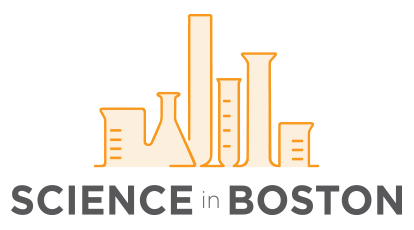This week we profile a recent publication in Cell Chemical Biology from Dr. André Richters (pictured, top left),
Dr. Shelby Doyle (top right) and the laboratory of Dr. Angela Koehler (bottom) at the Koch Institute.
Can you provide a brief overview of your lab’s current research focus?
The Koehler lab is focused on building chemical tools and methods for studying temporal aspects of transcriptional regulation in development and disease with a focus on cancer. The lab pursues these goals by discovering and developing direct small-molecule probes of proteins involved in transcriptional regulation such as transcription factors, chromatin modifying enzymes, and other nucleic acid binding proteins. We hope to overcome technical barriers to targeting these traditionally non-ligandable factors to elucidate biological mechanisms of health and disease and catalyze drug discovery efforts.
What is the significance of the findings in this publication?
The current treatment for prostate cancer consists of targeting androgen receptor (AR) activity, a key driver of prostate cancer. However, most patients will develop resistance to treatment and progress to castration resistant prostate cancer (CRPC). In pursuit of mechanistically novel modulators of AR, we’ve discovered a potent, ultra-selective CDK9 inhibitor. This study describes the most selective inhibitors of CDK9 known to date and provides compelling preclinical support in vitro and in vivo for targeting CDK9 as a therapeutic strategy in CRPC and other transcriptionally addicted tumor types.
What are the next steps for this research?
Kronos Bio, our industry collaborators who licensed and developed the KI-ARv-03 molecule to produce KB-0742, is on track to submit an IND in the fourth quarter of 2020 and initiate a Phase 1/2 clinical trial for advanced solid tumors in 2021 (via their press release)
This work was funded by:
Koch Institute –Dana-Farber/Harvard Cancer Center Bridge Project
NIH/NCI
Royal G. and Mae H. Westaway Family Memorial Fund
Ono Pharma Foundation
MIT Center for Precision Cancer Medicine
Janssen Pharmaceuticals, Inc.
National Science Foundation Graduate Research Fellowship
German Research Foundation DFG Postdoctoral Research Fellowship

